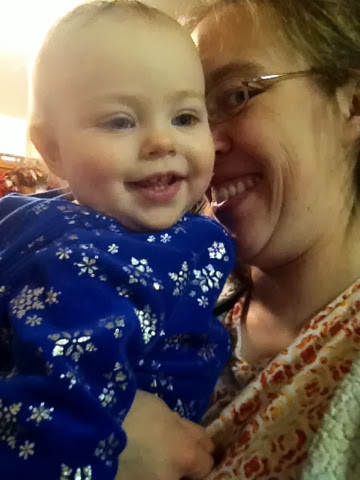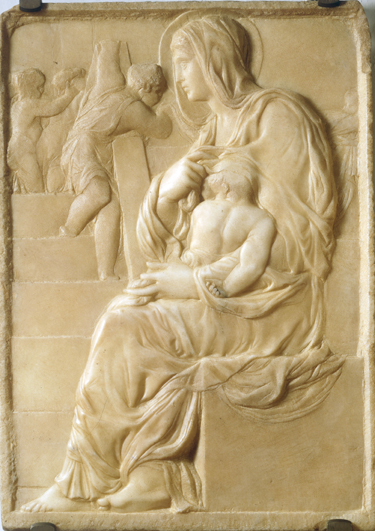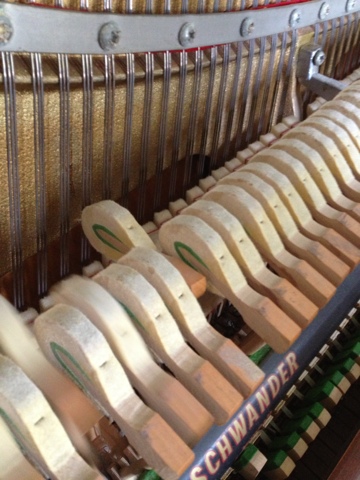I majored in Japanese in college, but I didn't do very well, owing to the fact that I hadn't the foggiest idea how to
study. I never needed to do it before then, not even in the Spanish or German classes that I fooled around with prior to going to college. It wasn't until I encountered the concept of a commonplace book that I learned how to study, and that idea I ran into just about 6 years ago when we were deciding to homeschool and researching how to go about doing it. If you glance through
my comments on President Benson's Proper Role of Government essay, you can see the changes as I learned to study and practiced this new skill learning about the Founding. My study of the Constitution was the first place I ever successfully studied anything on a long-term basis. I've been fooling around with Japanese longer, but it never amounted to anything.
About a year ago, that started to change, and there's a couple reasons for that.
A while back I was on the
Well-Trained Mind message boards (I think that's where it was, anyway. I like it there. Go by "Ritsumei". Wave if you see me!) and someone gave me permission to mix languages. See, I had this idea that I couldn't speak Japanese until I could
really speak it, all the way. In college they had this great Japanese conversation group. The TAs, the students, the folks who had been over to Japan teaching English, anybody who had two words of the language to show off, they were all invited to invade this great little coffee shop, and they'd just take over the loft and chatter away in Japanese. The TAs that did all the teaching basically demanded that we show up the first few times, and I felt like such an imposter. I couldn't follow the conversations, I couldn't say anything that was in my head, and the "dialogs" we memorized weren't very useful. (Are those socks nylon? No? Oh, they're cotton. I'll take it. Put it in a bag, please.) So I never said anything. And I only went occasionally, and I missed out on a fantastic opportunity to use the language in an incredibly supportive environment.
But it's OK to mix languages. You say what you can in the language you're learning, and you say the rest in the one you know, and
no kittens will die. Particularly not when you're sitting in your living room - or a cozy coffee shop - in America's Midwest. Not only will nothing bad happen, but something good will happen: practice with the words you do know. This is so simple, but it was such a revelation to me! I don't have to be able to discuss politics and philosophy to be able to start speaking!
So I'm teaching my kids Japanese now, and I talk to them in a strange pidgin nearly every day. And it's working. They are understanding more, and they're starting to throw in a word here and there, or a phrase. Our Japanese is a mess. It's full of Dragon's toddler lisps, Hero's uncertainty (he's like me, and inclined to wait till it's just right before allowing it to pass his lips), and my wobbly and incomplete grammar. Our levels of formality are all over the place. But it's happening. I get thanked in Japanese as much as in English. I tell Dragon, 「来てください。」 and he runs over as readily as if I'd said, "Come here, please." It's small stuff still, but it's a start. And since I'm studying, the quality of Japanese I can give them is improving.
Another thing I've learned is that little bits add up. I try to spend a little bit of time practicing, reading about grammar, studying my vocabulary,
something, every day. I don't reach that goal, but since I keep trying, I generally get a little something in most days. Often it's no more than 5 or 10 minutes, though I like it when I can spend 30 or even more while I'm nursing, or after the kids go to sleep a couple times a week. It's soothing. Since I've given myself permission to be where I am, and stopped beating myself for not being perfect Right Now, it's fun. If I spend some time studying grammar, then practice making up phrases or sentences using the new construction, odds are good that when I go read the Book of Mormon I'll find something using that, and my understanding will broaden.
Which brings me to the other thing that has made a
huge difference: my iPhone. I'm not an Apple person most of the time, and there's things about my phone that make me roll my eyes pretty regularly, but I love my Japanese apps. I've tried more than a few in the past few years, and have settled into a system with some favorites. Being able to cut-n-paste an unknown word from the scriptures into a dictionary and my flash card app has made a
huge difference. I love that I can carry a basic grammar reference, a couple sets of flash cards, several dictionaries, and The Book of Mormon and Bible -- in my pocket! Kids playing nicely in the backyard, and nobody needs attention? Awesome. I can flip up to ~60 flashcards in 5 or 10 minutes. Or try to read a verse while I'm waiting for Andy to run into the post office, including copy-n-pasting unknown words into a dictionary. This morning we practiced body parts. At least, that's what I told myself we were doing. I tickled the boys, and names the part I was attacking. And when I didn't know the word for "back," I looked it up without breaking the game! My phone will has a recording of a native speaker reading all the scriptures, so any chapter I want, I can have it read to me. I have an app that puts the English and Japanese (and 3587565436 other languages, if I want 'em) side-by-side, with the verses lined up, so I can easily reference them. We have some kid songs on my phone that I can bluetooth onto the speakers in the car, and off we go, singing the same stuff (kinda) in both languages. Technology is amazing stuff, and it's making a huge difference.
So, more and more all the time, we are chatting it up in Japanese. It's pretty amazing.
P.S. Wanna read more about the adventures at our house?
"Like" my blog on Fscebook to get my posts (and the articles n things I wish I had time to blog about) in your feed. Wanna see all the projects and ideas that I may or may not get around to?
Follow me on Pinterest. Thanks for stopping by!

































